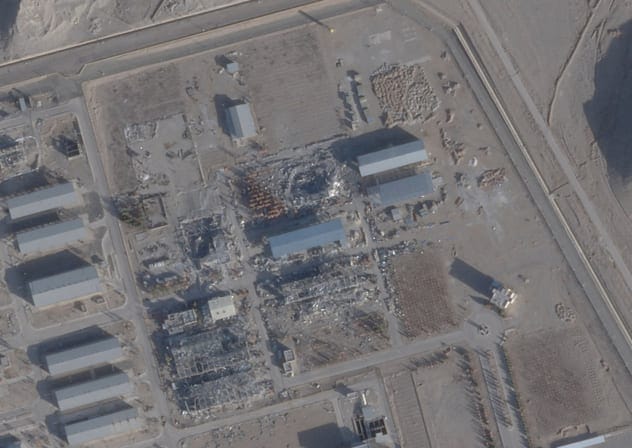US launches wave of military strikes on Iran from aircraft carriers, bases in region
US forces joined Israel in a fresh wave of strikes on Iran, signaling a wider military campaign as diplomacy over Tehran’s nuclear program faltered.

US forces joined Israel in a fresh wave of strikes on Iran, signaling a wider military campaign as diplomacy over Tehran’s nuclear program faltered.




Trump: US objective is to "defend the American people by eliminating imminent threats from the Iranian regime...We are going to destroy their missiles, we are going to annihilate their navy."

Explosions heard in Tehran • State of emergency issued in Israel

We backed the Iran nuclear deal not out of trust in Tehran but trust in physics. A decade later, Iran’s program is stronger, and the cost of abandoning diplomacy is clear.

Israel is closely monitoring US military deployments as uncertainty grows over Iran’s next move and the possibility of a broader regional showdown.

"The Iranian regime must stop taking hostages and release all Americans unjustly detained in Iran," Rubio said, as Trump states he is "not happy" with the negotiations.

This is the first time the IAEA has reported where uranium enriched to up to 60% purity, close to the 90% of weapons grade, has been stored.

Three out of the five factory warehouses were seen engulfed in flames.

The militia's threat came as the US Embassy in Israel said it had authorized the departure of non-essential personnel on Friday.

DIPLOMATIC AFFAIRS: Trump’s framing of Iran as a direct security threat to the US in his State of the Union address could shape whether Washington ultimately chooses war over diplomacy.

The regime, rights groups stated, would routinely force the families to register their loved ones posthumously as members of the paramilitary Basij militia, a force affiliated with the IRGC.
